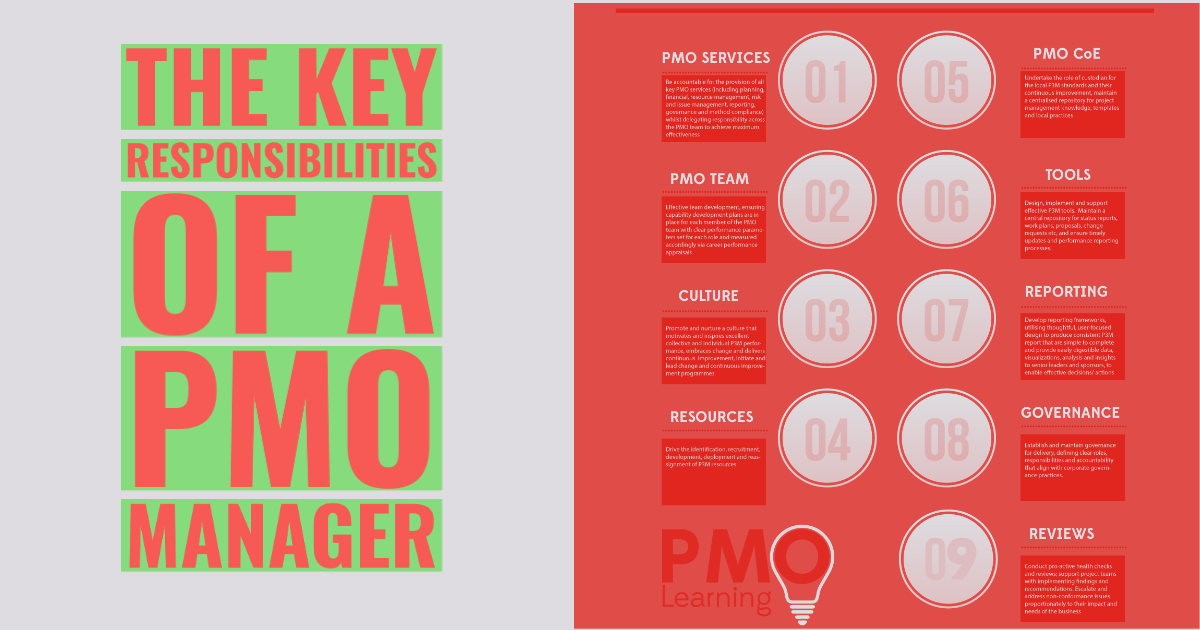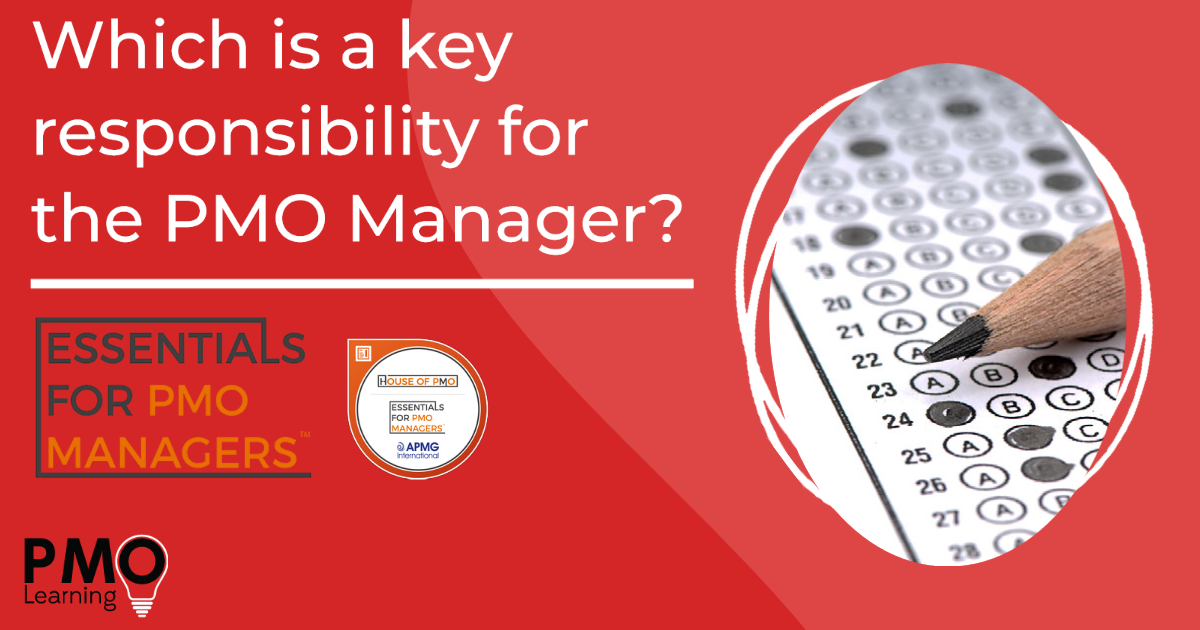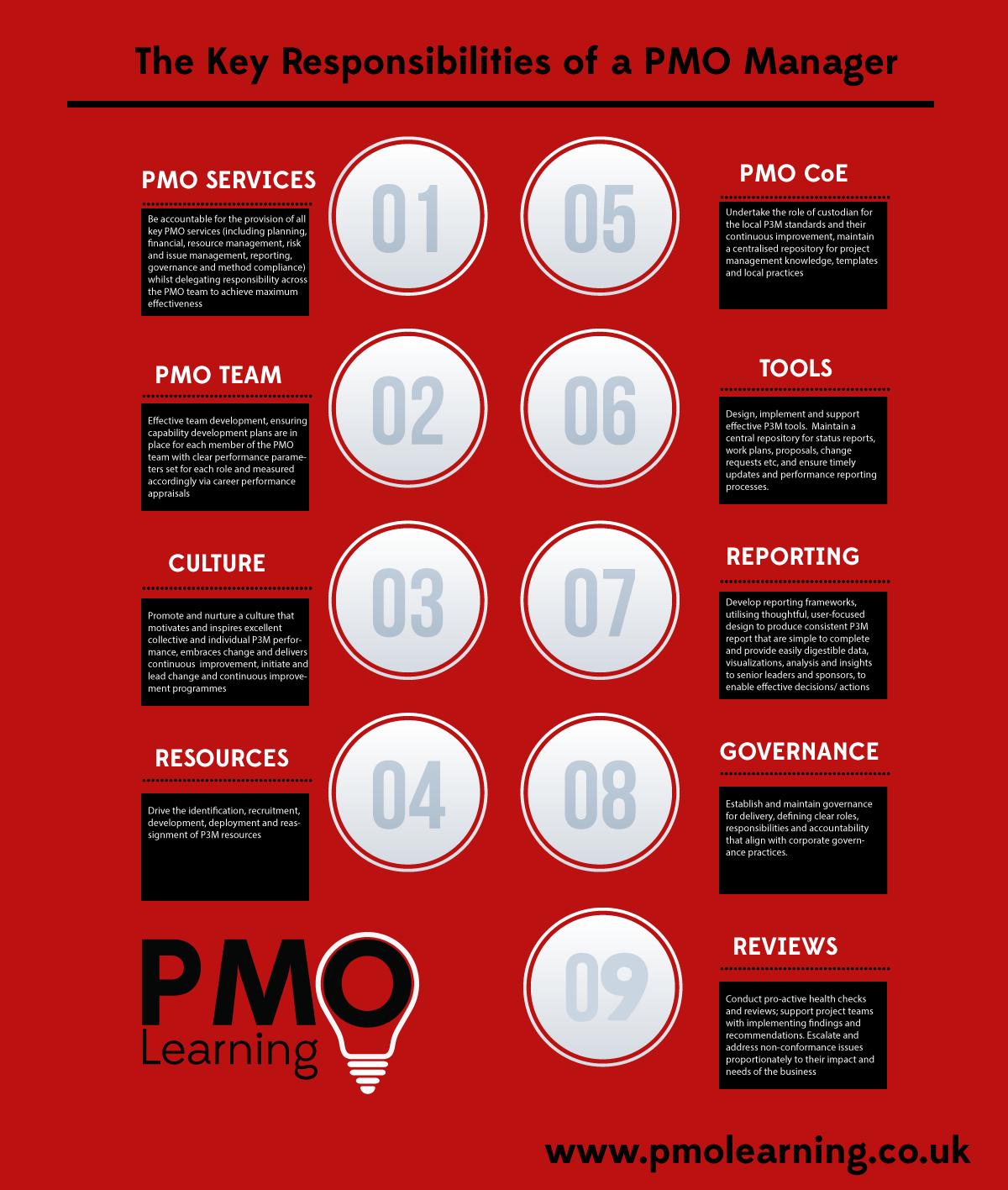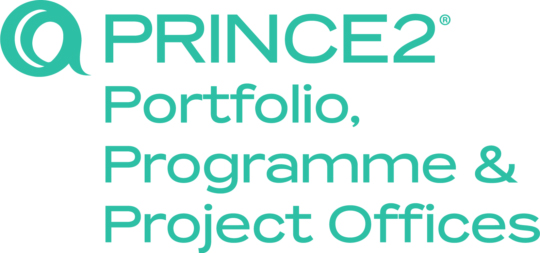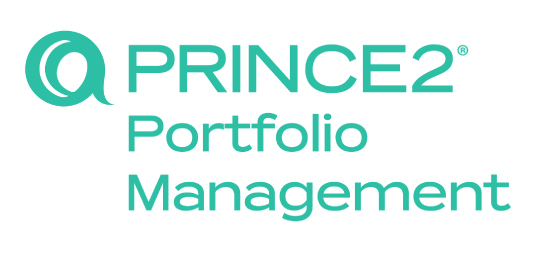If you’re reading this article right now, perhaps you’re already a PMO Manager; just checking to see if your current responsibilities align with industry-recognised responsibilities. Maybe you’re thinking about becoming a PMO Manager – you’re likely to be a PMO Analyst looking to step up – or maybe a current delivery manager – Project Manager or Programme Manager who has finally seen the light 🙂
Whatever your situation or interest, did you know that there are nine recognised key responsibilities for PMO Managers today, and each one of those forms the basis for the House of PMO training course for PMO Managers – called Essentials for PMO Managers?
The training course created by the House of PMO is based on the PMO Competency Framework and the four role profiles that can be found within it – PMO Administrator, PMO Analyst, PMO Manager and PMO Director.
Each role profile contains the key responsibilities of that role – and the training courses are built around those responsibilities. In other words, the training courses are designed to help you gain the essential knowledge you need to perform the role.
Time for a Quick Test
Before we take a look at what those responsibilities are – take a look at one of the exam questions from that training course and see how you get on:
Your choices are:
- Establish and maintain governance for delivery, defining clear roles, responsibilities and accountability that align with corporate governance practices
- Build and maintain organization delivery capability and capacity to match current and future needs
- Support senior management in championing and embedding P3M practices across the organization
- Implement PMO vision and strategy in alignment with strategic goals and objectives, including integration with the organisation planning and budgeting processes.
The answer is the first one.
The PMO Manager has the key responsibility to establish and maintain governance for delivery, defining clear roles, responsibilities and accountability that align with corporate governance practices.
How did you get on? Get the answer right?
What about the other three answers, who has responsibility for those? The PMO Director role takes responsibility for 2 and 4 and it’s the PMO Analyst who takes responsibility for 3.
The Nine Key Responsibilities of a PMO Manager
The nine key responsibilities of a PMO Manager have been created from a combination of current PMO practitioner insights and experiences plus market research. They formed part of the role profile of a PMO Manager – alongside the required skills, knowledge and behaviours required to perform the role competently.
Here are the nine:
- Be accountable for the provision of all key PMO services (including planning, financial, resource management, risk and issue management, reporting, governance and method compliance) whilst delegating responsibility across the PMO team to achieve maximum effectiveness.
- Effective team development, ensuring capability development plans are in place for each member of the PMO team with clear performance parameters set for each role and measured accordingly via career performance appraisals
- Promote and nurture a culture that motivates and inspires excellent collective and individual P3M performance, embraces change and delivers continuous improvement, initiate and lead change and continuous improvement programmes.
- Drive the identification, recruitment, development, deployment and reassignment of P3M resources.
- Undertake the role of custodian for the local P3M standards and their continuous improvement, maintain a centralised repository for project management knowledge, templates and local practices.
- Design, implement and support effective P3M tools. Maintain a central repository for status reports, work plans, proposals, change requests etc, and ensure timely updates and performance reporting processes.
- Develop reporting frameworks, utilising thoughtful, user-focused design to produce consistent P3M reports that are simple to complete and provide easily digestible data, visualizations, analysis and insights to senior leaders and sponsors, to enable effective decisions/ actions to be taken.
- Establish and maintain governance for delivery, defining clear roles, responsibilities and accountability that align with corporate governance practices.
- Conduct proactive health checks and reviews; support project teams with implementing findings and recommendations. Escalate and address non-conformance issues proportionately to their impact and needs of the business
>> You can also download the key PMO Manager responsibilities here
Training for PMO Managers
As you take a look through the key responsibilities, you might see some that you’re already familiar with or already do exceptionally well. Equally, there could be some that you know you don’t have much experience in.
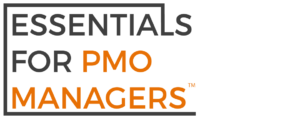 One of the reasons why the House of PMO created the Essentials courses for PMO practitioners was because there were no training courses available that focused on the roles people perform. Before the launch of these qualifications, the focus had been very much on how to set up a PMO – which is only part of the need for PMO Managers.
One of the reasons why the House of PMO created the Essentials courses for PMO practitioners was because there were no training courses available that focused on the roles people perform. Before the launch of these qualifications, the focus had been very much on how to set up a PMO – which is only part of the need for PMO Managers.
If you’re looking for learning and development options that help you to gain the knowledge required to carry out the role of PMO Manager, make sure you check out the syllabus for the Essentials for PMO Managers course.
It’s time to focus on you and your role in PMO management.
Enjoying Our Blog?
Sign up and receive all our articles (we’ll send you an update once a week!) plus special offers and events:
